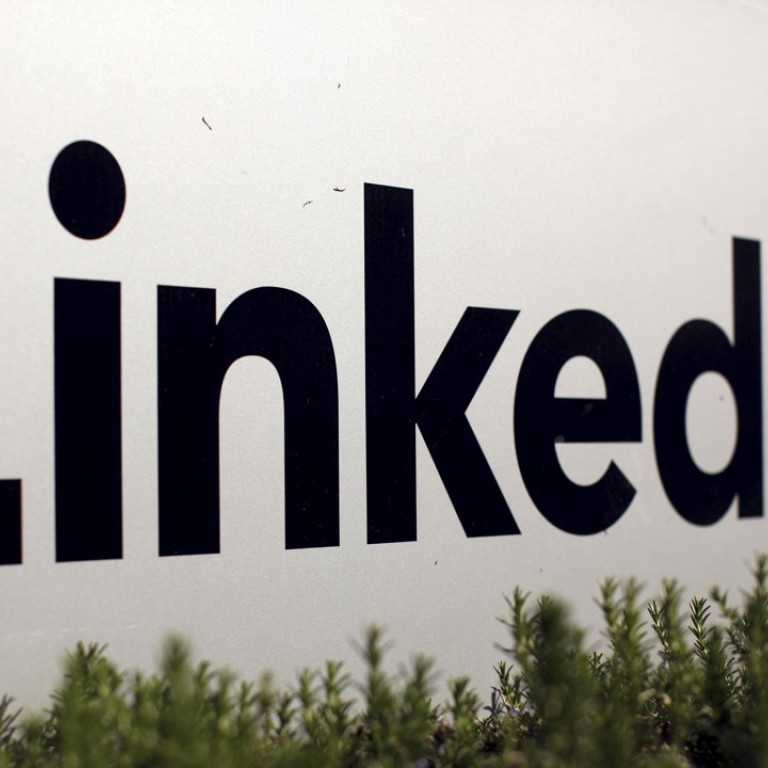
China using LinkedIn to recruit Americans, claims US spy catcher
The foreign ministry in Beijing described the accusation as ‘complete nonsense’
The United States’ top spy catcher said Chinese espionage agencies are using fake LinkedIn accounts to try to recruit Americans with access to government and commercial secrets, and the company should shut them down.
William Evanina, the US counter-intelligence chief, said intelligence and law enforcement officials have told LinkedIn, owned by Microsoft, about China’s “super aggressive” efforts on the site.

He said the Chinese campaign includes contacting thousands of LinkedIn members at a time, but he declined to say how many fake accounts US intelligence had discovered, how many Americans may have been contacted and how much success China has had in the recruitment drive.
German and British authorities have previously claimed that Beijing is using LinkedIn to try to recruit people as spies. But this is the first time a US official has made similar claims.
Evanina said LinkedIn could copy the response of Twitter, Google and Facebook, which have all purged fake accounts allegedly linked to Iranian and Russian intelligence agencies.
“Twitter is cancelling, I don’t know, millions of fake accounts, and our request would be maybe LinkedIn could go ahead and be part of that,” said Evanina, who heads the US National Counter-Intelligence and Security Centre.
LinkedIn boasts 562 million users in more than 200 counties and territories, including 149 million US members.

LinkedIn’s head of trust and safety, Paul Rockwell, confirmed the company had been talking to US law enforcement agencies about Chinese espionage efforts. Earlier this month, LinkedIn said it had taken down “less than 40” accounts of users who were trying to contact LinkedIn members associated with unidentified political organisations. Rockwell did not say whether they were Chinese accounts.
“We are doing everything we can to identify and stop this activity,” he said.
Rockwell declined to provide numbers of fake accounts associated with Chinese intelligence agencies. He said the company takes “very prompt action to restrict accounts and mitigate and stop any essential damage that can happen” but gave no details.
The foreign ministry in Beijing disputed Evanina’s allegations.
“We do not know what evidence the relevant US officials you cite have to reach this conclusion. What they say is complete nonsense and has ulterior motives,” the ministry said in a statement.

While Russia, Iran, North Korea and other nations are also said to use LinkedIn and other platforms to identify recruitment targets, the US intelligence officials said China is the most prolific and poses the biggest threat.
They are conducting economic espionage at a rate that is unparalleled in our history
US officials said China’s Ministry of State Security has “co-optees” – individuals who are not employed by intelligence agencies but work with them – set up fake accounts to approach potential recruits.
They said the targets include experts in fields such as supercomputing, nuclear energy, nanotechnology, semi-conductors, stealth technology, health care, hybrid grains, seeds and green energy.
About 70 per cent of China’s overall espionage is aimed at the US private sector, rather than the government, said Joshua Skule, the head of the FBI’s intelligence division, which is charged with countering foreign espionage in the US.
“They are conducting economic espionage at a rate that is unparalleled in our history,” he said.
Some current and former officials post significant details about their government work history online – even sometimes naming classified intelligence units that the government does not publicly acknowledge.
LinkedIn “is a very good site”. Evanina said. “But it makes for a great venue for foreign adversaries to target not only individuals in the government, formers, former CIA folks, but academics, scientists, engineers, anything they want. It’s the ultimate playground for collection.”

